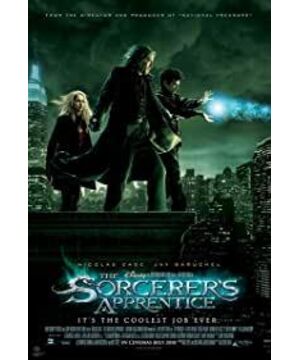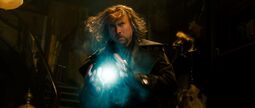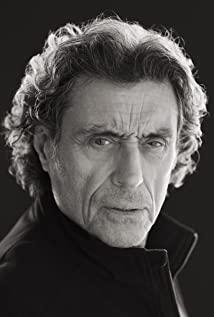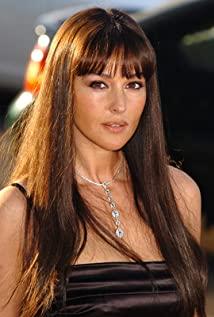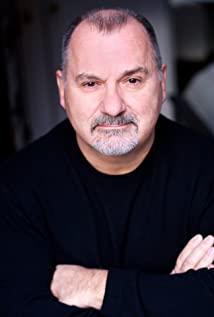Weak commercial films can also have deep cultural roots. The story of "The Sorcerer's Apprentice" originally came from a sonnet by Goethe. Later, a French composer Paul Ducas composed it into a symphony fragment of about 10 minutes, and later, Disney's 1940 cartoon. "Fantasia" added this symphony segment with a famous animated story paragraph: Mickey Mouse is an apprentice of an old magician. The magician does not teach him magic but asks him to carry water every day. One day Mickey accidentally stole his magic hat by a magician, and used a spell to make a broom grow out of his hands and feet to carry water for him. Soon, when the water was full, Mickey couldn't stop the broomstick—he didn't learn the spell to stop it. Mickey angrily chopped the broom into fragments. To his surprise, every fragment turned into a new broomstick. In the end, water flooded the entire cellar... This story is very similar to "One Thousand and One Nights" The fragments, with its simplicity and allegorical moral admonition. The movie "The Sorcerer's Apprentice" was written based on fragments, but its plot was boring, trite, and lacking in creativity to the point that I had no interest in retelling it. I can only say that even scripts written with computer programs will be a little more innovative than it.
Speaking of magic, the charm of magic in movies is not that you can use it to achieve anything you want. Magic has rules, and it changes and executes with a set of rules you don't understand. The charm of magic movies is to make people vaguely feel the set of rules and feel the mystery behind the magical miracles on the surface. The magic in "The Sorcerer's Apprentice" has become some of the least serious and some of the most superficial things because of the lack of any rules. You can use magic to turn the decoration on the wall of the Empire State Building into an iron bird to take your girlfriend to Paris, or you can use magic to turn a taxi into a brand-name sports car to chase your opponents. The film is aimed at the most superficial desire in the hearts of young people nowadays: I will satisfy you for any coolest thing magic can do. In the creation of the visual effects of the magic scene, the film also lacks the originality that makes people eye-catching. The most interesting part of the film is almost copied from "Fantasia": the protagonist David wants to clean the laboratory, so Ducas' symphony sounded, David cast magic on all the brooms, mops, and rags to make them dry automatically live. The melody of the music seems to bring people back to "Fantasia", and the audience seems to be watching Disney's animation again: in the animation, even the movie socket on the wall will turn into a smile. Even this paragraph that can only be regarded as "fried cold rice" is more interesting and vivid than other magic scenes in the movie, and it reminds Disney fans of the golden age of that company in an instant.
"The Magician's Apprentice" also lacks any refreshing characters. The magician Balthasar played by Cage can't be mentioned as a role that needs acting support, so Cage in the movie has no room for acting. "The Apprentice" David should play a hero-since the movie jumps into the savior's plot mode without hesitation, but he does not have any heroic qualities at all: his only characteristic is that he does not want to be a hero but has to be a hero. The hero, in the end, became a salvation hero almost effortlessly. I don't know if this is the first Disney movie to adopt this stale model, but one of them reveals ideology more obviously: heroes do not need extraordinary qualities, heroes are destined heroes. You may be, I may be. Wouldn’t it be enjoyable for the audience to see that an ordinary guy like himself might become a savior? In the movie, I am more satisfied with the bad guy Hovas played by Alfred Molina. Although there is no character depth, Molina's performance reflects the typical bad guys like Hovas.
In "The Sorcerer's Apprentice", the names of producer Jerry Bruckheimer and Disney are more important than director Joe Detduba and starring Nicholas Cage, and they can better illustrate the film's " Traits". After the "authorism" has become popular and the independent production model of directors has become mainstream, "The Magician's Apprentice" unexpectedly reminds people: In today's Hollywood, it is the producer who occupies the pinnacle of power. The director And star is a tool for producers to execute their own intentions. This is no different from the classic Hollywood period.
View more about The Sorcerer's Apprentice reviews


